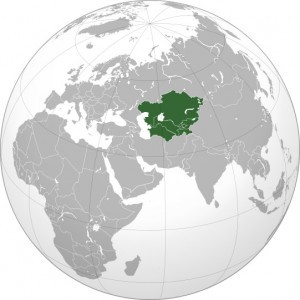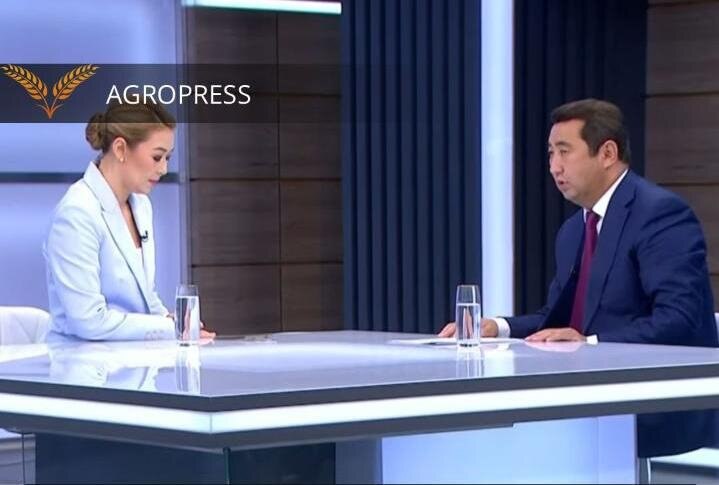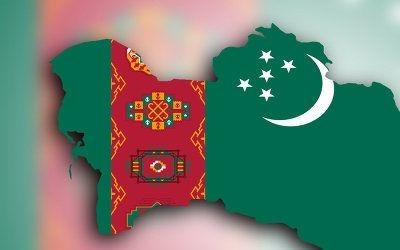BISHKEK (TCA) — The Times of Central Asia presents to its readers Stratfor’s Global Intelligence, a weekly review of the most important events that happened in the world — from Europe to Middle East to Russia to Central Asia to Afghanistan to China and the Americas.
The Week That Was
Japan Cabinet Reshuffle
Japanese Prime Minister Shinzo Abe carried out a partial Cabinet reshuffle this week, focusing primarily on backing his economic policies. Prior to the reshuffle the outgoing Cabinet approved a new fiscal stimulus package that contained just $73 billion in new spending, far less than markets had hoped for. Several new Cabinet members strong supporters of Abenomics. One such new minister, Kozo Yamamoto, is a pro-Abenomics economist key to shaping Abe’s economic agenda before Abe became prime minister. Yamamoto had previously pushed for the Bank of Japan to directly finance reconstruction efforts after Fukushima.
But Abe also appointed Tomomi Inada as Japan’s new defense minister. Inada is considered hawkish, and is viewed with concern in South Korea and China for her views on Japan’s wartime past, on the controversial Yasukuni Shrine, and on territorial disputes. Inada has suggested that Japan would consider acquiring nuclear weapons if circumstances warranted. Her appointment reinforces Abe’s drive to normalize the Japanese armed forces, and reflects underlying nationalist sentiments that may continue to complicate relations with Japan’s neighbors.
Turkey’s Post-Coup Reverberations Continue
Turkey is still settling into its post-coup trajectory, as President Recep Tayyip Erdogan reasserts his party’s dominance. The ruling Justice and Development Party (AKP) is working to foster nationalist solidarity and loyalty in the ranks of the military and civil society alike. But Pro-AKP rallies and inter-party meetings have so far still excluded the pro-Kurdish Peoples’ Democratic Party (HDP), as before the coup attempt.
Larger questions were raised this week about the possibility of Turkey moving closer to Russia and Iran and further away from its Western allies. A visit by a key U.S. military official to his Turkish counterpart and Incirlik air base was intended to help calm the stressed state of relations. The European fretted this week over Turkey’s threat to set aside the migrant deal if the bloc does not grant visa liberalization by October. This would be a difficult deadline to meet on Erdogan’s continued arrests and suspensions in an effort to rout out coup plotters. Erdogan’s condemnation this week of Western nations whom Turkey “considered friends” is concerning for U.S. and EU relations with a key NATO and anti-Islamic State ally. The tension, however, is not moving toward fraying those ties.
Economic Effects of the Brexit
This week the United Kingdom started to see early signals of the economic effects of the Brexit referendum. On Aug, 4, the Bank of England reduced interest rates and announced a stimulus package to boost economic growth in the country. According to the bank, the Brexit referendum will lead to weaker economic growth, rising unemployment, increasing inflation and declining housing prices. However, the bank did not forecast a recession.
Most economic actors in the United Kingdom, including companies and households, are in “wait and see” mode, delaying investment and spending decisions until the situation becomes clearer. While the British government said formal negotiations with the European Union will only start in early 2017, the evolution of the economy will be a significant factor shaping London’s moves. While Germany, and to a lesser extent France, understand that London needs time before formally starting negotiations to leave the European Union, they will not wait indefinitely. As a result, pressure on London will start by the end of the year.
China’s Power Struggles Continue
This week saw significant developments in President Xi Jinping’s ongoing effort to break down power centers and patronage networks not his own while strengthening his influence over key state institutions like the military. On Aug. 2, Chinese authorities announced wide-ranging organizational reforms to the Communist Youth League, a Party organ tasked with training future cadres. In practice, the reforms will curb the influence of what has long been one of China’s key centers of power and undermine a network that includes former President Hu Jintao, Premier Li Keqiang and many of Hu’s closest aides, including Ling Jihua, who is already serving a life sentence for corruption.
Meanwhile, on Aug. 1 the South China Morning Post reported that Beijing is quietly accelerating efforts to downsize the People’s Liberation Army, and on Aug. 5 news surfaced that two more retired senior military commanders have been detained by military disciplinary officers. At this point, four of ten military commanders on the 17th Central Military Commission (2007-2012) have been detained or are in prison — an unprecedented number. Taken together, the Youth League reorganization and military developments indicate that Xi is not merely consolidating his and his network’s position within the Party but seeking to eliminate alternative networks entirely.
South African Municipal Elections
South Africa held municipal elections on Aug. 3 for the first time since 2011. With more than 95 percent of ballots counted, the results indicate the worst showing for the ruling African National Congress (ANC) since the end of apartheid in 1994. The opposition Democratic Alliance (DA), the country’s second largest political party, claimed its first victory in Nelson Mandela Bay, where Port Elizabeth. As of writing, it is holding a slender lead in Johannesburg and Tshwane, the country’s administrative capital, Pretoria, is located. While the ANC dominated the national vote, the local election results underscored the dissatisfaction many South Africans have with the party, and may signal that the country’s political landscape is becoming increasingly competitive. Lastly, the poor results for the ANC may open up fissures in the party, leading to greater calls for a leadership recall for President Jacob Zuma, also head of the ANC.
India’s Goods and Services Tax
On Aug. 3, the upper house of India’s parliament unanimously passed a constitutional amendment in support of the Goods and Services Tax. While the amendment is only the beginning of a complex process towards unifying India’s tax market, its approval marks a major victory for prime minister Narendra Modi, his biggest legislative achievement since entering office in May 2014.
Going forward, at least 15 of India’s states now need to ratify the bill—a process that could take months—after which the parliament will need to pass another bill actually implementing the tax. Finally, a Goods and Services Tax council will need to begin the potentially protracted process of agreeing on a tax rate, one that is both high enough to satisfy state demands for adequate revenues yet low enough to mitigate central government concerns of stoking inflation. The next major move for India’s financial sector will be appointing a new central bank governor as Raghuram Rajan’s term ends next month. That appointment is expected sometime in the next few weeks.
Full Articles
The Slow Evolution of China’s Coal Behemoth
China’s Sichuan Coal Group, a provincial state-owned enterprise, is just one in a sea of small to middling Chinese coal businesses on the perpetual verge of bankruptcy. The company announced July 27 that it had completed a nearly 1.06 billion-yuan ($159.5 million) bond payment that it had missed in June, a rare piece of positive news from an industry battered by sluggish demand, low coal prices and the central government’s increasingly stringent attempts to cut excess capacity. But Sichuan Coal’s payment, which averted a bond default, hardly augurs an upswing for the industry that has powered China for a century and that still supplies 64 percent of the country’s energy mix today.
The Arduous Task of Regulating Bitcoin
If cryptocurrencies are ever to be widely trusted and accepted, the regulations surrounding them must be clear. But as these rules are formed, they are redefining the currencies themselves. On July 25, Miami-Dade Circuit Judge Teresa Mary Pooler cleared Michell Espinoza of all charges against him — one count of unauthorized money transmission and two counts of money laundering using bitcoins. Pooler justified the ruling by saying bitcoins have no “tangible wealth” and are far from being equivalent to fiat currency; instead she found that in selling bitcoins, Espinoza was merely selling his own property. This is believed to be the first state-level money laundering case involving a cryptocurrency in the United States, and proponents of bitcoin watched it closely.
Pooler’s ruling was made at a low-level state court and will become legally important only if it is appealed, thereby moving up through the U.S. court system. But it sheds light on the fragmented and ambiguous regulatory and legal structure surrounding cryptocurrencies in the United States, particularly at the state level. This ambiguity has stifled the acceptance of cryptocurrencies and blurred their meaning. And though the United States is not the only country lacking clear regulations on cryptocurrencies, as the heart of the global financial system, it is the most important in determining the currencies’ future.
European Banks’ Struggles Will Continue
European regulators officially consider most banks in the eurozone stable, despite the timid economic growth and low interest rates in the currency area. Most banks in the eurozone have enough capital to face a new economic crisis, according to stress tests by the European Banking Authority (EBA) on July 29. The tests come as the banking sectors of several EU members are dealing with multiple sources of vulnerability. In recent weeks, Italian banks have come under intense scrutiny from investors, analysts and politicians. Most of the attention has focused on Monte dei Paschi, which has required two state bailouts in recent years.
Other institutions, including Italy’s largest bank, UniCredit, have seen their share prices decline sharply in recent weeks. Since the beginning of the year, the shares of Germany’s Deutsche Bank, weighed down by low earnings and multiple lawsuits, have dropped by half. Spanish banks are probably stronger than they were during the height of the financial crisis, but large lenders such as Santander have also struggled with low profits. The fallout over the United Kingdom’s decision to leave the European Union has helped accelerate their decline, as the uncertainty created by the Brexit has raised questions about the health of European banks. But there are also structural issues at play.
The Week Ahead
Erdogan in Moscow
Turkish President Recep Tayyip Erdogan will head to Moscow on Aug. 9 ready to discuss a wide range of issues with President Vladimir Putin. The tension in Ankara’s current relationship with Western powers underlines the significance of the meeting with Russia as the first bilateral meeting for Erdogan since the July 15 coup attempt in Turkey. Erdogan and Putin will discuss further implementation of major projects like Turkstream and the Akkuyu Nuclear Power Plant, as well as bolstering agricultural, trade and tourism ties.
Strategically, as the first meeting between the two heads of state since ties were mended in June, the optics of Turkey truly mending fences with Russia is concerning to Turkey’s NATO and EU allies. But Turkey is clearly seeking to widen its range of partners to give it space to continue acting in Syria and to mend its shaky economy, rather than reorienting itself away from its Western relationships.
Putin Visits Azerbaijan
Russian President Vladimir Putin will travel to Baku on Aug. 8 to hold talks in a trilateral format with his Azerbaijani and Iranian counterparts. The primary focus of the meeting will be the implementation of the North-South transportation corridor, a combined shipping, rail and road route that runs from Iran through Azerbaijan to Russia’s Baltic Sea ports. However, the three leaders also have plenty of geopolitical issues to discuss, not least of which is Azerbaijan’s conflict with Armenia over Nagorno-Karabakh and the nascent rapprochement between Russia and Turkey. Armenian President Serzh Sarkisian will also pay a visit to the Kremlin on Aug 10. With the broader Caucasus region in flux, these meetings will be key to watch for any indications of shifts in the complex web of relationships that shape the region.
Brazil’s Impeachment Saga Continues
Brazil’s Senate will decide Aug. 9 on whether there exists a legal basis to begin impeachment hearings against former President Dilma Rousseff. Rousseff was impeached by the lower house of Brazil’s congress in May. It is likely that the Senate will decide to open the hearings. The final hearings on Rousseff’s removal are expected to begin Aug. 29 and conclude on Sept. 2. Some unrest is likely once the hearings get started, particularly from Workers’ Party allies or groups opposed to the rule of interim president Michel Temer. However, the Workers’ Party does not appear to be pushing for demonstrations as a means of impeding the final hearings.
Egypt’s IMF Negotiations
The first major round of Egyptian International Monetary Fund (IMF) negotiations will conclude next week, having kicked off in Cairo on July 30. The government of Egypt is working hard to communicate to Egyptians that any conditions the $12 billion of International Monetary Fund loans requires were already within President Abdel Fattah al-Sisi’s ongoing economic reform programs. This is only partly true. The message they are trying to push out is that the government is pushing through economic changes like subsidy cutbacks and not a foreign institution is key. This will help imbue the austerity-wary population with confidence that Egypt can weather the tough months ahead, if they can be convinced.
The prize at stake is a $2 billion infusion of IMF funds into Egypt’s Central Bank by September, if terms on a value-added tax and more flexible exchange rate can be reached. The challenge ahead is how well Egypt can meet the immediate demands of its poor, subsidy-reliant population while meeting International Monetary Fund suggestions.









